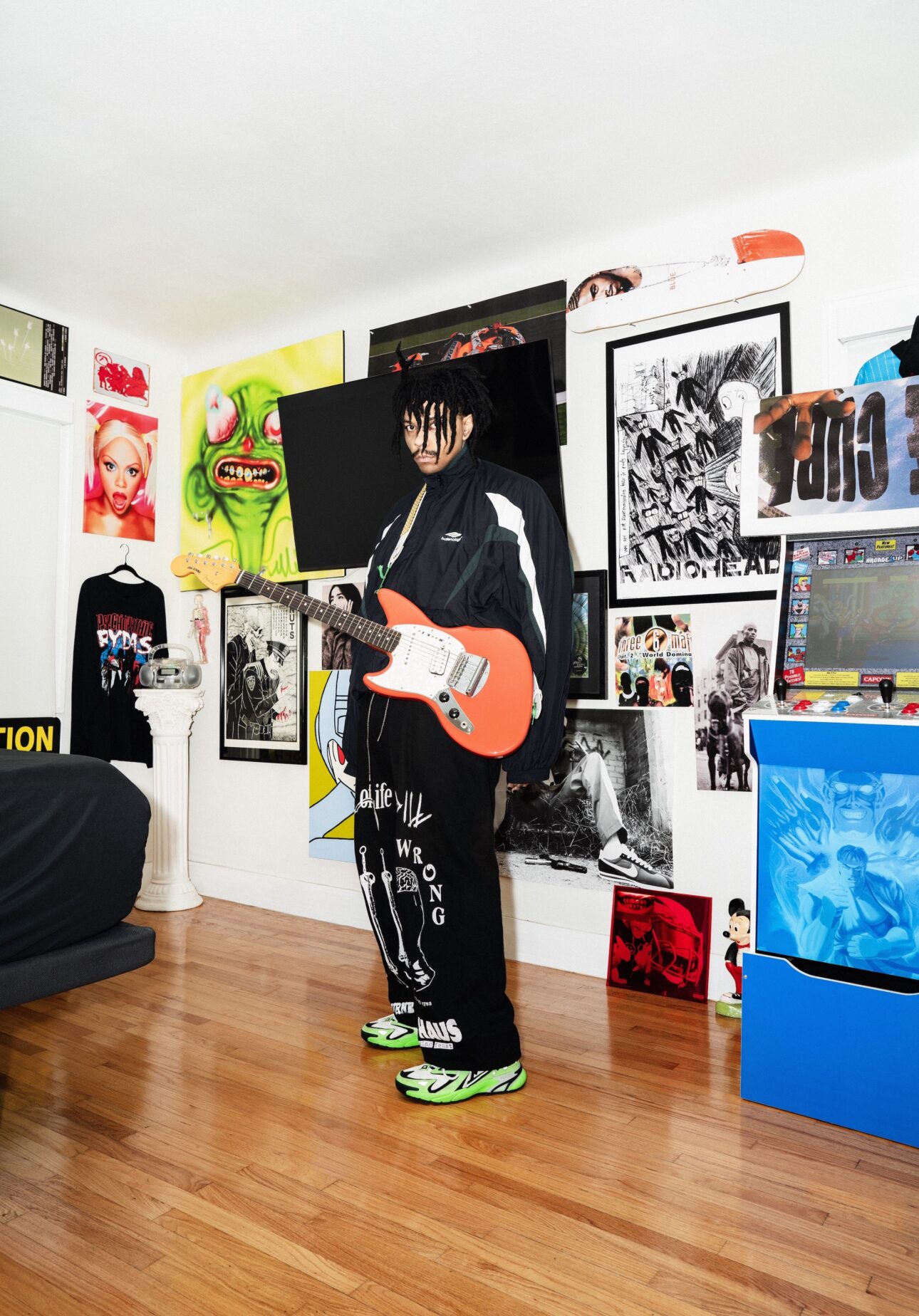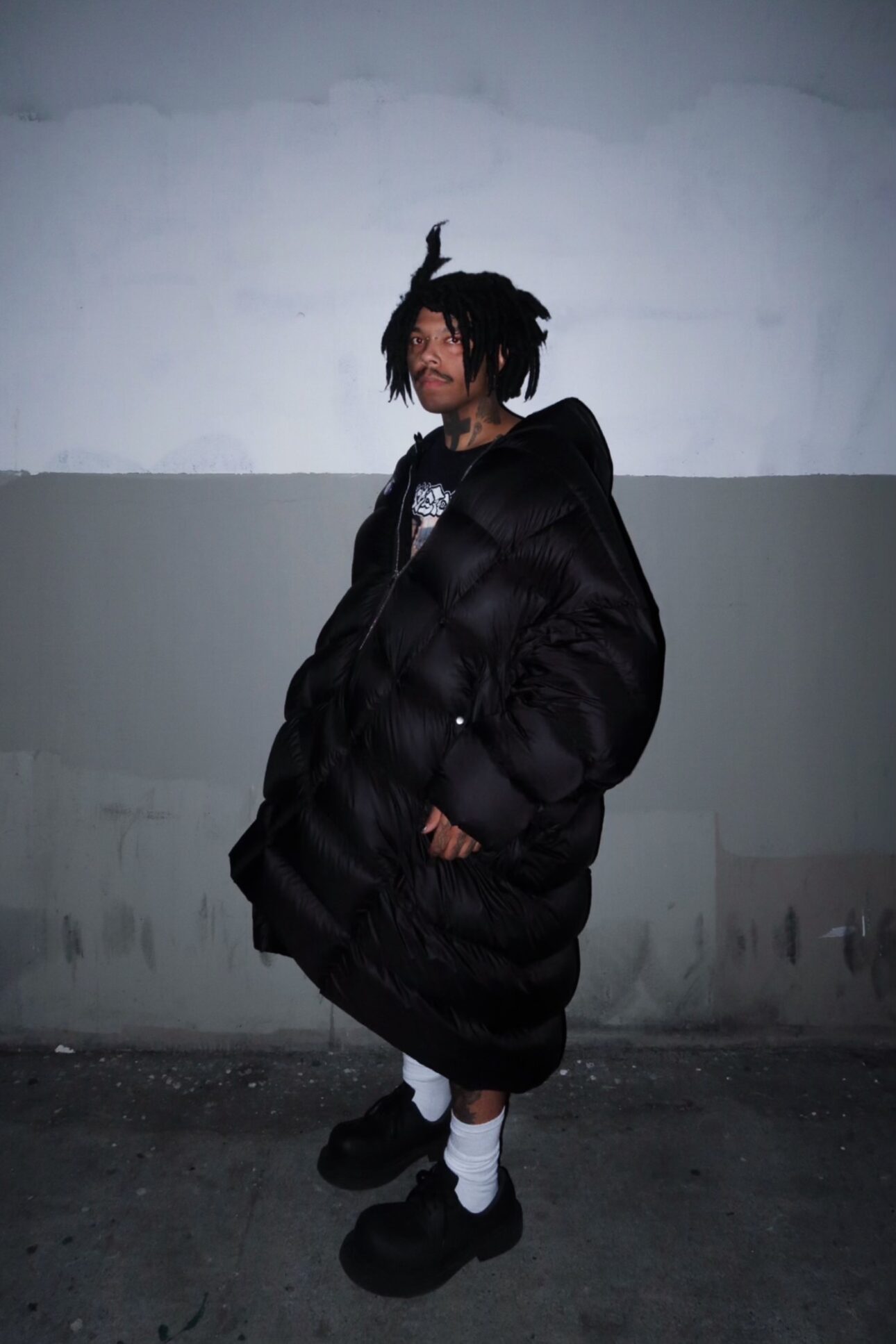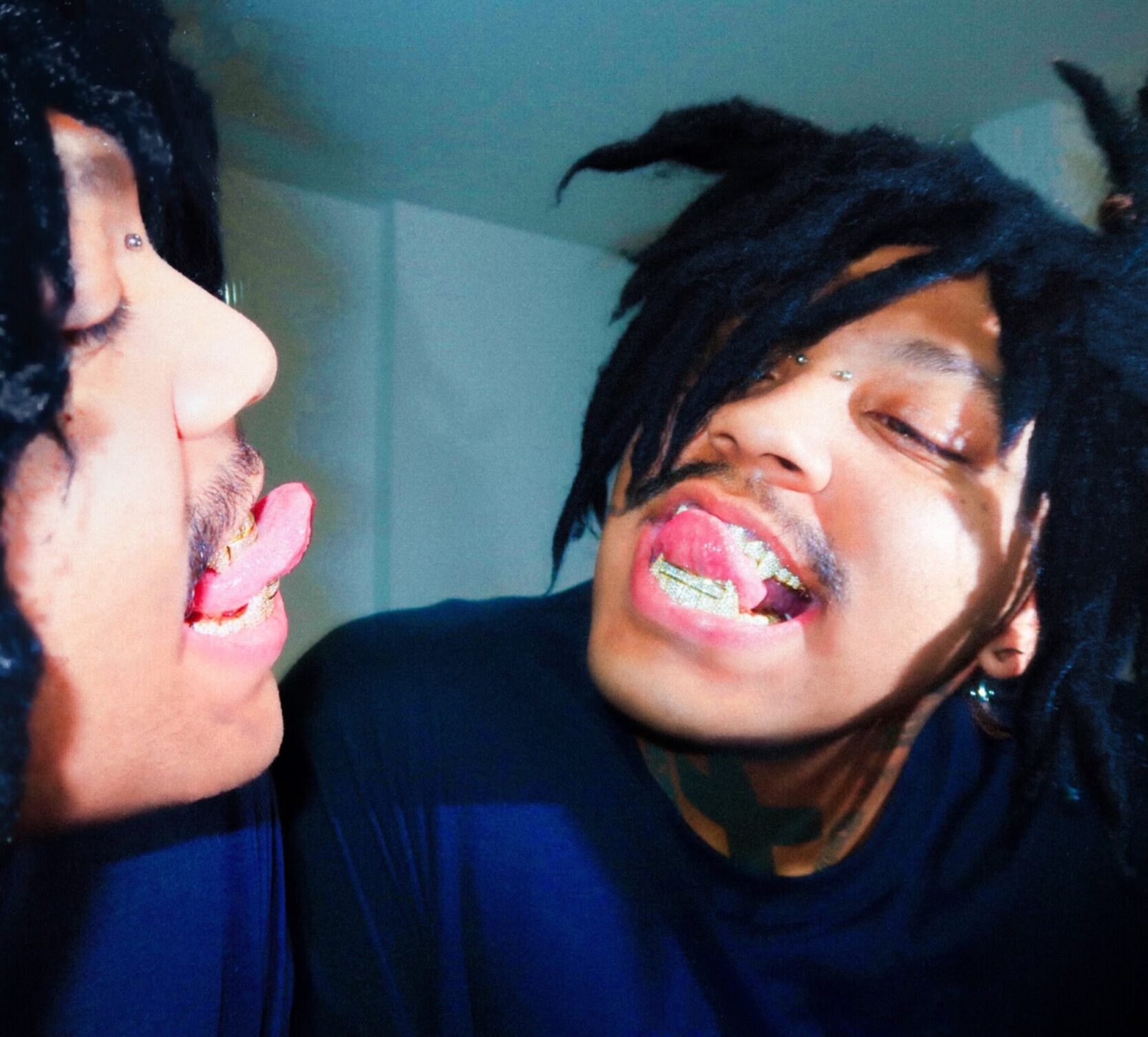Jean Dawson’s life reads like a movie. Born in San Diego to a military father from Long Beach and a Mexican mother from Sinaloa, he relocated to Tijuana, where he spent his childhood crossing the border to continue attending American schools. But it was an arduous road—literally and figuratively. He and his brother would wake up before sunrise, take a 20-minute bus ride to the border, and wait in line for hours to get into the United States. They did this for years until his mother was able to move her family to Spring Valley, California. Despite how difficult that road was, the experience gave him a powerful work ethic and the confidence to pursue a career in music.
Dawson moved to Los Angeles after graduating from high school, to study film at California State University. There, he recorded his first album, 2019’s Bad Sports, an eclectic melting pot of genres that spoke to his vast influences, including Outkast, the Cure, N.E.R.D., and Nirvana.
Jean’s music eventually made it into the hands (or, better, ears) of Rick Rubin, who promptly signed him to his American Songs imprint.
Since then, the 28-year-old has been working tirelessly on his craft. His most recent LP, Chaos Now, was released in 2022, followed by the 2023 single “No Szns” featuring SZA.
More recently, he released the first installment of a three-part EP series, Boohoo. The songs, which include his first full track in Spanish, are intended as an overture to his new album out later this year. Jean talked to me about his upbringing, the importance of family, and who’s on his Mount Rushmore of music.
For the sake of this interview, let’s pretend we’ve never spoken before. Tell me about your upbringing.
I was born in ’95 in San Diego. But a few years later, some pretty big devastating thing happened to where my brother, myself, and my mother had to move to Mexico; Tijuana to be exact. But my mother wanted us to have schooling from the United States. So I actually walked across the border every day to get to where I needed to go. It’s actually something that a lot of people do, this long commute that takes you into the States.
We would take the bus from my house in Tijuana to the border, which was maybe a 20-minute ride. Then we would get off of the bus and get into a long line to cross into America. It’s around three hours maybe, just waiting in line, because there’s at least a thousand people trying to cross at the same time. It’s also like 4:00 [a.m.] because everybody has to get to work by like 7:00 or 8:00. So I’m just a little kid with a backpack with my older cousins, who did that way longer than I did. I did that up until middle school.
By the time I got there, other kids are walking in, fresh-faced, little lunch pails and stuff. But I just had to traverse an entire country in order to get the same level of education, so I really took my education seriously.

Did you feel like you had a mission?
Yeah, but I wasn’t cognizant of it when I was that young. I didn’t know how to feel about it. My cousins did it, and my aunts did it to go to work. I didn’t feel like it was something that was necessarily fucked up or not. But I didn’t feel like it was like a deterrent. I knew I was more tired than other kids were, but I don’t know, man. I’m Mexican. We just work hard and don’t think about it. But you can’t tell the school you’re doing that because they’ll kick you out.
How long did you live in Mexico?
Essentially my whole life, but after middle school, we moved to Spring Valley, California near San Diego. My time was spent literally split in half between Mexico and America my entire adolescence.
In Mexico, we didn’t have a water heater, so we’d have to heat up water on the stove. It was a little ritual just to take a shower. But I look back on that fondly. It reminds me how fortunate I am to live in the United States. I love America, but I think how fortunate I am to be able to have something as basic as hot water.
One thing I will say about my people is that on top of everybody knowing that we work hard, I think it also is very indicative that we are of service to other people. My mother spent so much time raising me, but so did my grandmother. The finances that I lacked for my childhood were made up in ways of love, of community. I was raised by every single woman in my family. I was raised by an entire village.
I’m envious of the community aspect in other cultures.
This Christmas, I was vehemently obsessed with playing Santa Claus for my family, especially for all the women in my family. I never got to spoil my family. I wouldn’t be the human I am without them. I was able to voice that this year—I sat down and talked to each one of them and gave my thank you. I owe my entire career to these women. Without them, I wouldn’t be able to express how I feel. And 90, if not 100%, of my job is just expressing how I feel about something very particular.
You have mentioned challenging that hyper-masculinity that you experienced with the men around you.
Part of that Latin identity comes with a very macho culture, a defense mechanism to protect our families. For some reason, it’s very valuable to us to be kind of the protector. Our tradition is very rooted in the fact that women are seen as somebody that needs to be protected. My father and I had a tumultuous relationship when I was young because he wasn’t around as much, and that was simply because of his job. The United States military does a very good job at separating fathers from their children.

You just did a song with SZA. You have songs with A$AP Rocky. When you look at what you’re doing right now, does it feel surreal, or did you know this was meant for you?
I have so much gratitude that I get to do this. I made a decision when I was 21 when I was going through a really rough time. I was in college and working on my first album in my dorm room. For whatever reason, my family’s predisposed to depression. When I was a kid, part of the reason why I moved to Mexico was because depression runs in my family. When I was 21, I had to leave school, put everything on hold because I wanted to kill myself every day. I felt nothing, and that was the craziest part.
Since I was 13 years old, music has been the thing that I’ve loved the most. But when I was 21, I decided like, “OK, this is what I want. I don’t want anything else.” Thankfully, with that much clarity, I put out my first record. I told my mom, “Hey, I’m going to leave school.” My mom’s biggest dream for her children was for them to go to college and graduate. So I had to sit down with my mom and be like, “I know that this is what you want, but I can’t live life for you.”
I dropped out of school and became very calculated about everything I wanted to do. I made music the focal point of my existence. Nobody in my family has ever been in the arts. We’ve all been in the mindset of “you need to work to live.” But I need to work to live because if I don’t do this, I won’t have a reason to live.
My mental health will suffer. Thankfully, I’ve connected with people. And people understand where I’m coming from, and I’m able to communicate in a way I was never able to as a child.
Maybe that’s why you have a million monthly listeners on Spotify.
My life experience has put me in a place where I’m very aware that this thing that I’m able to do is one in a million of a chance. It’s still not guaranteed that I’m able to do this thing forever. And if nothing is guaranteed, the only thing that’s guaranteed is that I’m gonna work my ass off until I can’t anymore. The common through line for anybody that’s ever had success is not stopping.
How did you get on Rick Rubin’s radar?
I worked with a gentleman named Theo Bark. He started working on my team after my first album. He grew up with somebody that works directly under Rick. And essentially what happened is, he sent my music to the person he grew up with in New York. And they were like, “Whoa, this is…” whatever nice things that they said. And they’re like, “We’re going to show Rick.” They showed Rick and then a week later or so, they’re like, “Rick wants to meet you.”
Understand, I’m a kid from poverty, and mysticism doesn’t do shit for me. I’m like, “You know what’s not mystic? I don’t know if we’re going to have money to eat.” I knew of Rick Rubin, obviously. I’ve known of the Beastie Boys. I’ve known of the things that he did with Bob Dylan. I’m very aware of Def Jam. But when people are like, Oh, he’s like a wizard. I’m Black and Mexican, and I’m God-fearing. So anything that’s just like hoo-ha, I’m like, “All right, dude. I take a shit just like you, dog.” But to my delight, it was literally exactly how people explained it. It was a pretty magical experience meeting that old man.
I was like, “This is a motherfucker that just likes music a whole lot and whatever.” When I went up to Shangri-La. I’m sitting in there, and then this fool appears out of nowhere. So I’m talking to everybody else and all of a sudden, I just felt somebody next to me, and it was Rick Rubin. I’m like, “What the fuck?” I didn’t hear him come in the room. We talked about music, and he listened to my music. And then he asked if I would come and play more music soon. And I was like, “Yes, absolutely.” Maybe like two weeks later, they’re like, “Rick wants to sign you.”
Who’s on your Mount Rushmore of music?
Earl Sweatshirt’s there, Prince is there, and funny enough, Mac DeMarco is also up there. There’s so many, but I would say on the last end is maybe Ice Cube and Nipsey Hussle. I would also say Janis Joplin and Kurt Cobain.
Earl is also a rock kid at heart. I’ve hung out with him listening to fucking Modest Mouse, and I’m like, “Oh, shit, he put on Modest Mouse.” This is why I connected to him mad early on.
Did Rick Rubin change your life?
For sure, just by believing in me. Before any labels, he was like, “This kid has something.” It’s him and my family at Pulse together. They basically came together and made it to where I can make music on my own terms.
What’s up next in 2024?
I have been working on a trio of projects. One, two, and three are done. It’s indicative of what my next album sounds like. It’s called Arcoíris, which is “rainbow” in Spanish. And this new series has been kind of in my head like a Harry Potter book. I highlight aspects of my character—not as in like who I portray but who I am as a person. There’s a lot of things that I’m very excited about. I’ve been doing a lot of work with very special people and a lot of legends.
I’m very fortunate.




